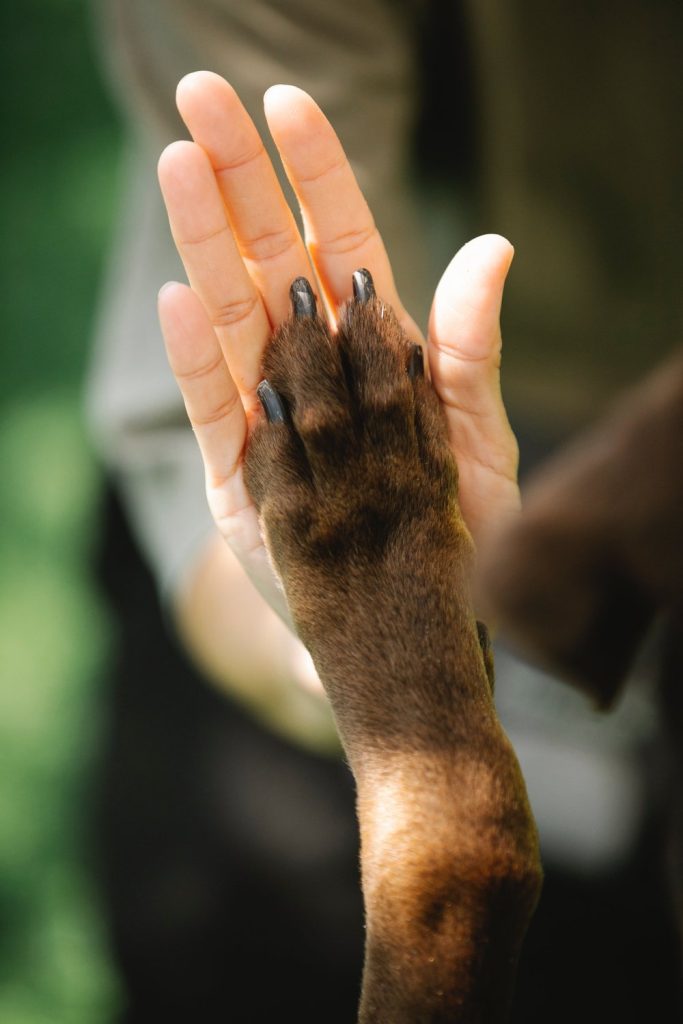When a beloved pet passes away, the pain can be just as profound as losing a human loved one. Our animal companions hold a special place in our hearts, offering unwavering loyalty, comfort, and unconditional love. Yet, in the face of such loss, our attempts to console often fall short, unintentionally causing further hurt. This delicate matter prompts a crucial question: What Not to Say to Someone Grieving the Loss of a Pet?
In the bustling city of London, Ontario, where pet ownership is widespread, and the bonds between humans and their furry, feathered, or scaly friends run deep, navigating pet loss with sensitivity is paramount. In this blog post, we delve into the intricacies of supporting individuals through the grief of losing a pet.
Understanding the Grieving Process for Pet Owners
Understanding the grieving process for pet owners is essential as they navigate the loss of their furry friend. Pets hold a special place in their owners’ hearts, often becoming integral members of the family. When they pass away, pet parents experience a profound sense of loss akin to losing a loved one. Reflecting on happy memories shared with their companions can provide solace during this time of grief. Acknowledging and allowing oneself to mourn the loss of a pet is crucial for healing, as it validates the depth of the bond between pet and owner. By understanding the stages of grief and seeking support from friends, family, or pet loss support groups, pet parents can gradually find acceptance and peace in the wake of their beloved companion’s passing.
What Not to Say to Someone Grieving the Loss of a Pet?
“It’s just a pet.”
Perhaps one of the most dismissive things you could say to someone grieving the loss of a pet is, “It’s just a pet.” While the intention might be to minimize their pain, it invalidates the depth of the bond the person shared with their companion. Pets are not “just” anything; they are cherished members of the family. Grief counseling in London, Ontario, emphasizes acknowledging the significance of the relationship between a pet and its owner, treating it with the same respect and compassion as any other loss.
“You can always get another one.”
Suggesting that the grieving individual can replace their pet with another one, overlooking the unique connection they had with their deceased companion. Every pet has its personality, quirks, and memories attached to it. While getting another pet might be a consideration in the future, it’s not a solution to the immediate pain of loss. Grief counseling in London, Ontario, encourages allowing space for the grieving process without rushing into decisions about replacing the pet.
“At least it was just a labrador.”
Comparing the loss of one pet to another based on species or breed undermines the individual’s feelings of grief. Whether it’s a dog, cat, bird, or any other animal, the bond between a pet and its owner is unique and irreplaceable. Each loss is valid and significant in its own right. Grief counseling in London, Ontario, emphasizes the importance of validating the emotions associated with the loss, regardless of the type of pet.
“It’s been 5years; aren’t you over it yet?”
Grief has no timeline. Everyone experiences and processes grief differently, and there’s no “right” or “wrong” way to grieve. Pressuring someone to “get over” the loss of their pet within a certain timeframe only adds to their distress. Grief counseling in London, Ontario, emphasizes the importance of allowing individuals to grieve at their own pace, offering support and understanding along the way.
“I know how you feel.”
While the intention behind this statement may be to show empathy, it can come across as dismissive if the person hasn’t experienced a similar loss. Even if you’ve lost a pet yourself, each person’s experience of grief is unique. Instead of assuming you know how they feel, offer your support and a listening ear without comparing their experience to your own. Grief counseling in London, Ontario, highlights the importance of active listening and validation in supporting someone through their grief journey.
“You should be grateful for the time you had together.”
Encouraging gratitude can help cope with loss, but it’s essential to acknowledge the pain of the present moment first. Telling someone to be grateful for the time they had with their pet may unintentionally invalidate their current feelings of sadness and grief. While reflecting on cherished memories can eventually bring comfort, it’s crucial to allow space for processing emotions without rushing to find silver linings. Grief counseling in London, Ontario, emphasizes the importance of validating all emotions associated with grief, including sadness and anger.
“It’s time to move on.”
Moving on from the loss of a pet doesn’t mean forgetting or replacing them; it means finding a way to adjust to life without their physical presence. However, pushing someone to move on before they’re ready can be detrimental to their healing process. Grief counseling in London, Ontario, encourages supporting individuals in finding healthy ways to cope with their loss while honoring the memory of their beloved pet.
Conclusion
Losing a pet is a significant and deeply personal experience that can evoke a range of emotions. Knowing what not to say to someone grieving the loss of a pet is essential in providing sensitive and meaningful support. By avoiding dismissive or invalidating comments and instead offering empathy, validation, and a listening ear, you can help ease the burden of grief for your loved ones. Grief counseling in London, Ontario, offers valuable guidance and resources for those navigating the complexities of pet loss, emphasizing the importance of compassion and understanding in supporting individuals through their grief journey.
Ready to support your loved ones through the grieving process with empathy and understanding? At Authentic Living, we specialize in providing grief counselling London Ontario, and giving compassionate guidance to those navigating the complexities of pet loss. Say goodbye to well-meaning but misguided sentiments and join us in fostering a supportive environment where individuals can truly express and process their grief. Reach out to Authentic Living today, and let’s journey together toward healing and emotional wellness. If you want to read more about “What Is Grief Counseling?” just visit our blog page today!
FAQs: What Not to Say to Someone Grieving the Loss of a Pet?
Why is it important to know what not to say to someone grieving the loss of a pet?
Understanding what not to say helps avoid inadvertently causing further pain to the grieving individual, allowing for more meaningful and supportive interactions during a difficult time.
Can’t I just offer advice or solutions to help them feel better?
While well-intentioned, offering advice or solutions may come across as dismissive of the person’s emotions. Instead, simply offering empathy and a listening ear can be more comforting.
What if I’ve experienced a similar loss and want to share my story?
While sharing your own experience can be well-meaning, it’s essential to remember that everyone’s grief journey is unique. Focus on offering support and validation rather than comparing experiences.
Is it okay to use clichés or platitudes to try to comfort them?
Clichés and platitudes, such as “They’re in a better place,” can minimize the person’s grief and invalidate their feelings. It’s best to offer genuine empathy and support without relying on clichéd phrases.
What if I’m uncomfortable discussing grief or emotions?
It’s natural to feel uncomfortable discussing grief, but offering your presence and support, even if it’s simply listening without judgment, can make a significant difference to someone grieving the loss of a pet.

